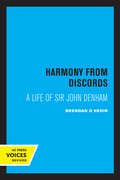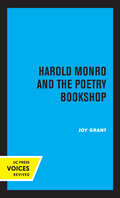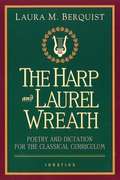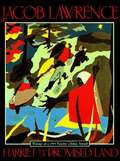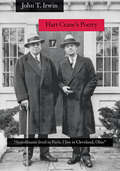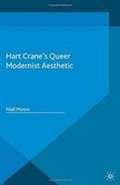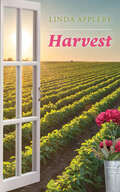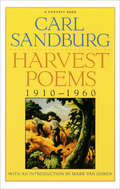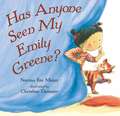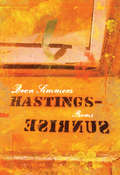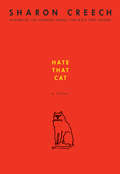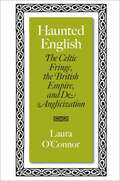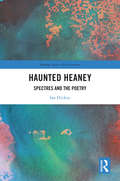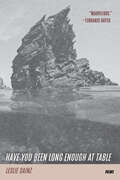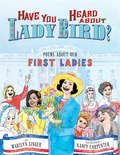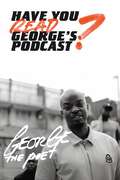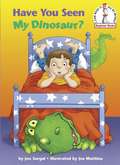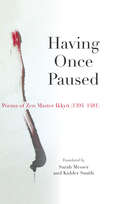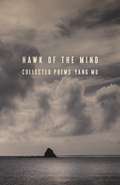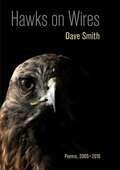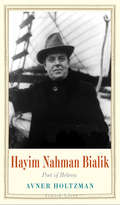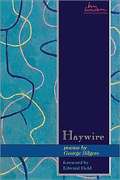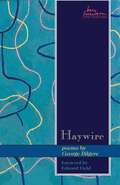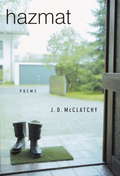- Table View
- List View
Harmony from Discords: A Life of Sir John Denham
by Brendan O HehirThis title is part of UC Press's Voices Revived program, which commemorates University of California Press’s mission to seek out and cultivate the brightest minds and give them voice, reach, and impact. Drawing on a backlist dating to 1893, Voices Revived makes high-quality, peer-reviewed scholarship accessible once again using print-on-demand technology. This title was originally published in 1968.
Harold Monro and the Poetry Bookshop
by Joy GrantThis title is part of UC Press's Voices Revived program, which commemorates University of California Press’s mission to seek out and cultivate the brightest minds and give them voice, reach, and impact. Drawing on a backlist dating to 1893, Voices Revived makes high-quality, peer-reviewed scholarship accessible once again using print-on-demand technology. This title was originally published in 1967.
Harp And Laurel Wreath: Poetry And Dictation For The Classical Curriculum
by Laura BerquistConvinced that a critical part of education is to foster in our children a love of the beautiful and true, teacher and writer Laura Berquist presents this wide selection of poetry for every age level from grades one to twelve. Language development is significantly enriched by exposure to good poetry. This book is an important resource because it provides in one volume many poems that concern noble actions or ideas presented in beautiful patterns of sound. <p><p> This book contains all the poems recommended in Berquist's best-selling Designing Your Classical Curriculum. The extensive selection includes poems by Robert Louis Stevenson, Henry Wadsworth Longfellow, Robert Browning, William Shakespeare, G.K. Chesterton, William Butler Yeats, Robert Frost, and many others. There are three indices to help locate specific poems. This book also includes dictation selections that are useful tools in the development of the child's writing ability, as well as study questions and answers for each poem.
Harriet And The Promised Land
by Jacob LawrenceA brief biography in verse about Harriet Tubman and her dedicated efforts to lead her fellow slaves to freedom.
Hart Crane's Poetry: "Appollinaire lived in Paris, I live in Cleveland, Ohio"
by John T. IrwinHonorable Mention, Literature, 2012 PROSE Awards, Professional and Scholarly Publishing Division of the Association of American Publishers2012 Outstanding Academic Title, Choice MagazineIn one of his letters Hart Crane wrote, "Appollinaire lived in Paris, I live in Cleveland, Ohio," comparing—misspelling and all—the great French poet’s cosmopolitan roots to his own more modest ones in the midwestern United States. Rebelling against the notion that his work should relate to some European school of thought, Crane defiantly asserted his freedom to be himself, a true American writer. John T. Irwin, long a passionate and brilliant critic of Crane, gives readers the first major interpretation of the poet’s work in decades. Irwin aims to show that Hart Crane’s epic The Bridge is the best twentieth-century long poem in English. Irwin convincingly argues that, compared to other long poems of the century, The Bridge is the richest and most wide-ranging in its mythic and historical resonances, the most inventive in its combination of literary and visual structures, the most subtle and compelling in its psychological underpinnings. Irwin brings a wealth of new and varied scholarship to bear on his critical reading of the work—from art history to biography to classical literature to philosophy—revealing The Bridge to be the near-perfect synthesis of American myth and history that Crane intended.Irwin contends that the most successful entryway to Crane’s notoriously difficult shorter poems is through a close reading of The Bridge. Having admirably accomplished this, Irwin analyzes Crane’s poems in White Buildings and his last poem, "The Broken Tower," through the larger context of his epic, showing how Crane, in the best of these, worked out the structures and images that were fully developed in The Bridge.Thoughtful, deliberate, and extraordinarily learned, this is the most complete and careful reading of Crane’s poetry available. Hart Crane may have lived in Cleveland, Ohio, but, as Irwin masterfully shows, his poems stand among the greatest written in the English language.
Hart Crane's Queer Modernist Aesthetic
by Niall MunroHart Crane's Queer Modernist Aesthetic argues that the aspects of experience which modernists sought to interrogate - time, space, and material things - were challenged further by Crane's queer poetics. Reading Crane alongside contemporary queer theory shows how he creates an alternative form of modernism.
Harvest
by Linda ApplebyHarvest was forged in an emotional melting-pot. The author was walking one morning in the grounds of Fulbourn Psychiatric Hospital near Cambridge, having been held under a section of the Mental Health Act. This meant that she could not leave the hospital grounds. But the grounds were extensive and from the edge of the gardens she could see Fulbourn windmill standing on the brow of Fulbourn Hill. She reached deeply inside herself and came up with a poem which, though she had always written, came from a place more serious and resonant than ever before.Gradually, other poems followed, detailing her interaction with the mental health system and the consoling connection she felt with the natural world. On her release, she finished the collection: songs, sonnets, hymns and ballads, a readable variety of responses to harsh experience.
Harvest Poems: 1910–1960
by Carl SandburgThe great American poet’s essential collection spanning fifty years of verse—with an introduction by Mark Van Doren.With major contributions in the realms of journalism, biography and children’s fiction, Carl Sandburg was a luminary of twentieth-century American literature. But he was first a foremost a poet who transformed the diversity of his experience into powerfully vivid and beloved verse. His many collections won numerous accolades, including two Pulitzer Prizes.This selection of Sandburg’s poems is culled from half a century of output and includes thirteen poems appearing in book form for the first time. As this collection so masterfully demonstrates, “[Sandburg’s poetry] is independent, honest, direct, lyric, and it endures, clamorous and muted, magical as life itself” (New York Times).
Has Anyone Seen My Emily Greene?
by Norma Fox MazerThe perennial game of hide-and-seek between parent and child inspires a lilting text and charming illustrations. It's time for lunch, but where, oh, where is Emily Greene? Her father searches for her everywhere, but without any luck. Look carefully, and don't forget to check behind the curtains! In her first picture book, acclaimed author Norma Fox Mazer teams with renowned illustrator Christine Davenier to create a merry game of hide-and-seek. Readers will delight in searching for giggling Emily and in the warm relationship between this irrepressible little girl and her loving, good-humored father.
Hastings-Sunrise
by Bren SimmersHastings-Sunrise is a love letter to a fleeting place and time. Bren Simmers's second collection captures her old East Vancouver neighbourhood in the midst of upheaval. As it is colonized by tides of matching plaid and diners serving pulled-pork pancakes, condo developments replace the small businesses and cheap rentals that once gave the area its charm.Much like opening a set of nesting dolls, leafing through the collection exposes further layers of depth and intimacy. Within the context of cultural change, Simmers explores the meaning to be found in everyday things: the making of a home, the life built from daily routines. At the same time, she reveals the dissonance that can occur between personal and large-scale change: "Twitter feed of melting sea ice, / colony collapse / while we picnic under pink ribbons, / kiss again like we mean it."Throughout the collection, the poet's eye unfailingly lights on the perfect details to evoke a scene: "On Mr. Donair's spit, / the earth rotates. Papal smoke emits / from Polonia Sausage, semis shunt / downtown." Visual poems forming maps of Christmas lights and autumn colours further bring the Hastings-Sunrise neighbourhood to life, illustrating the interweaving of human and natural spaces and locating "home" in between.Like a tree clothed in multicoloured yarn or a miniature house filled with free books, Hastings-Sunrise is a gift to readers, beautiful in its simplicity.
Hate That Cat
by Sharon CreechJack<P><P> Room 204—Miss Stretchberry <P> February 25<P> Today the fat black cat<P> up in the tree by the bus stop<P> dropped a nut on my head<P> thunk<P> and when I yelled at it<P> that fat black cat said<P> Murr-mee-urrr<P> in a <P> nasty<P> spiteful<P> way.<P> I hate that cat.<P> This is the story of <P> Jack<P> words<P> sounds<P> silence<P> teacher<P> and cat.
Haunted English: The Celtic Fringe, the British Empire, and De-Anglicization
by Laura O'ConnorHaunted English explores the role of language in colonization and decolonization by examining how Anglo-Celtic modernists W. B. Yeats, Hugh MacDiarmid, and Marianne Moore "de-Anglicize" their literary vernaculars. Laura O'Connor demonstrates how the poets’ struggles with and through the colonial tongue are discernible in their signature styles, using aspects of those styles to theorize the dynamics of linguistic imperialism—as both a distinct process and an integral part of cultural imperialism. O'Connor argues that the advance of the English Pale and the accompanying translation of the receding Gaelic culture into a romanticized Celtic Fringe represents multilingual British culture as if it were exclusively English-speaking and yet registers, on a subliminal level, some of the cultural losses entailed by English-only Anglicization. Taking the fin-de-siècle movements of the Gaelic revival and the Irish Literary Renaissance as her point of departure, O'Connor examines the effort to undo cultural cringe through language and literary activism.
Haunted English: The Celtic Fringe, the British Empire, and De-Anglicization
by Laura O'ConnorA study of how English’s colonial history inflects the literary vernaculars of Anglo-Celtic modernists W. B. Yeats, Hugh MacDiarmid, and Marianne Moore.Haunted English explores the role of language in colonization and decolonization by examining how Anglo-Celtic modernists W. B. Yeats, Hugh MacDiarmid, and Marianne Moore “de-Anglicize” their literary vernaculars. Laura O’Connor demonstrates how the poets’ struggles with and through the colonial tongue are discernible in their signature styles, using aspects of those styles to theorize the dynamics of linguistic imperialism—as both a distinct process and an integral part of cultural imperialism.O’Connor argues that the advance of the English Pale and the accompanying translation of the receding Gaelic culture into a romanticized Celtic Fringe represents multilingual British culture as if it were exclusively English-speaking and yet registers, on a subliminal level, some of the cultural losses entailed by English-only Anglicization. Taking the fin-de-siècle movements of the Gaelic revival and the Irish Literary Renaissance as her point of departure, O’Connor examines the effort to undo cultural cringe through language and literary activism.“This is a promising contribution to an expanding discipline.” —Paul Shanks, Comparative Literature Studies“Laura O’Connor has written a distinguished and groundbreaking study.” —Murray Pittock, Clio“Smart, engaging, and intellectually provocative.” —Rob Doggett, Victorian Studies“An often brilliant account of how three modernist poetries contributed to the global decline of Anglocentrism . . . Essential for anyone looking for fresh interpretations of Yeats, MacDiarmid, or Moore, it will also interest readers concerned with the promises and challenges of writing transnational literary criticism.” —Matthew Hart, Modernism/Modernity“Insightful, scintillating, attentive to every nuance . . . O’Connor’s study will reward greatly anyone interested in the critical revivalism that is both her subject and her inheritance.” —Gregory Castle, Irish Literary Supplement“Valuable and original work that participates in some of the most exciting and forward-looking trends in current Irish and literary studies.” —Marjorie Howes, Boston College, author of Yeats’s Nations: Gender, Class, and Irishness
Haunted Heaney: Spectres and the Poetry (Routledge Studies in Irish Literature)
by Ian HickeyHaunted Heaney: Spectres and the Poetry looks at the ghosts and spectres present within the poetry of the Nobel Prize winning poet Seamus Heaney. Covering Heaney’s work from his first collection, Death of a Naturalist, to his final collection, Human Chain, this volume analyses Heaney’s poetry through the lens of hauntology as presented by Jacques Derrida in Specters of Marx. This book presents spectres and ghosts not in the conventional sense, as purely supernatural, physical manifestations haunting a place, but instead as having a non-physical presence. In this sense past cultures, societies, texts, poets, and memories are examined as having a spectral influence on Heaney’s writing. His work is indebted to hauntedness as the past in all its forms sutures itself within the present of his thinking and writing, and our reading of the poetry. Topics for discussion include the Norse spectres in the early poetry; British colonialism and its haunting influence on the poet; a renewed look at the bog poems as being influenced by the spectral; the classical influence of Virgil and Dante; and a reading of ‘Route 110’ that incorporates the major instances of Heaney’s career into a singular poem. The book also incorporates Heaney’s prose work and interviews into the discussion and uses these works as a metacommentary to the poetry offering a deeper insight into the mind of one of Ireland’s greatest writers.
Have You Been Long Enough At Table
by Leslie Sainz“Marvelous.”—Terrance Hayes Taking its title from Hemingway’s The Old Man and the Sea, Leslie Sainz’s Have You Been Long Enough at Table explores the personal and historical tragedies of the Cuban American experience through a distinctly feminine lens. Formally diverse with echoes of Spanish throughout, this debut collection critiques power and patriarchy as weaponized by the governments of the United States and the Republic of Cuba. In investigating the realities of displacement and inherited exile, Sainz honors her imagined past, present, and future as a result of the “revolution within the revolution”—the emancipation of Cuban women. Through lyric and associative meditations, Sainz anatomizes the unique grief of immigrant daughters, as her speakers discover how family can be a microcosm of the very violence that displaced them. What emerges is a spiritual blueprint for disinheritance, radical self-determination, and the nuanced examinations of myth, ritual, and resistance.
Have You Heard About Lady Bird?: Poems About Our First Ladies
by Marilyn SingerThe role of First Lady has been defined differently by each woman who's held it, but all of them left an impact on our nation as partner of the commander in chief. Incisive poetry by Marilyn Singer and energetic art by Nancy Carpenter provide a fascinating glimpse into the lives of women-from Martha Washington to Eleanor Roosevelt to Lady Bird Johnson-who variously embraced the position and shied away from it, craved the spotlight and fiercely guarded their privacy, took controversial stands and championed for the status quo. Detailed back matter includes short biographies, quotations, and more.
Have You Read George’s Podcast?
by George the Poet'There's something special about it: the storytelling is unique, so exciting, so kinetic. Even though it's in your ears, you feel like you're walking along with George.' -- Candice Carty-Williams'Have You Read George's Podcast? is a collection of the scripts of 28 of his podcasts. Even on the page, they are evidently brilliant, creating a shifting, shimmering world that remains anchored in the big questions of history, empire and identity that form the tec tonic plates of George's imagination.' -- Sunday Times '[George's podcast] blows through the medium's newly established boundaries, offering an experience as innovative as it is undefinable.' -- New Yorker'A genre-defying piece of audio that pushes the limits of what a podcast can be.' -- New York Times'There can't be many people out there who don't think George the Poet is a bit of a genius.' -- Charlie Phillips, Guardian***For fans of the critically-acclaimed, award-winning podcast Have You Heard George's Podcast?, a stunning collection of the scripts of the podcast, plus bonus material from George the Poet.There's nothing quite like Have You Heard George's Podcast?. Listeners and critics have struggled to fit it into just one neat category, jumping as it does between autobiography, fiction and social commentary, often in a single episode - and virtually all of it performed in spellbinding rhyming verse. And now the complete scripts of Chapters One, Two and Three are available to enjoy, along with new writing by George. This collection allows fans to read (and re-read) his words, and with new extra insights and commentary on each episode and Chapter. In the book, just as in the podcast, George The Poet delivers an incredibly powerful and unique perspective on politics, modern society, history and current affairs through the art of storytelling, speculative fiction and spoken word. The book also offers a deeply personal summation of George's observations, experiences and vision for the future. Whilst his narrative takes us all around the world, the ultimate ambition is to empower the next generation, starting with his community.
Have You Seen My Dinosaur? (Beginner Books)
by Joe Mathieu Jon SurgalA five-year-old boy searches high and low for his missing dinosaur, and the people he asks for help do not believe such a creature actually exists.
Having Once Paused: Poems Of Zen Master Ikkyu (1394-1481)
by Sarah Messer Ikkyu Sojun Kidder SmithThe influence of Zen Master Ikkyu (1394-1481) permeates the full field of medieval Japanese aesthetics. Though best known as a poet, he was central to the shaping and reshaping of practices in calligraphy, Noh theater, tea ceremony, and rock gardening, all of which now define Japan's sense of its cultural tradition. Ikkyu is unique in Zen for letting his love of all appearance occupy him until it destroys any possibility for safety or seclusion. In his poetry, he turns the eye of enlightenment to all phenomena: politics, pine trees, hard meditation practice, sex, wine. A lifelong outsider to religious establishments, Ikkyu nonetheless accepted Imperial command to rebuild his home temple, Daitoku-ji, destroyed in the civil wars. He died before that project was complete. The poems in this collection express the unborn bliss of Ikkyu's realization and equally his devastation at the horrors of this world. They are peopled with ancient Chinese poets, cantankerous Japanese Zen Masters, contemporary warlords, and his lover Mori, a blind musician who lived with Ikkyu the last eleven years of his life. All of this is his Buddhism. His awakening outshines the small idols of reason, emotion, self, desire, doctrine, even of Buddhism itself.
Hawk of the Mind: Collected Poems (Modern Chinese Literature from Taiwan)
by Yang MuYang Mu is a towering figure in modern Chinese poetry. His poetic voice is subtle and lyrical, and his work is rich with precise images and crystalline thoughts invoking temporality and remembrance. A bold innovator and superb craftsman, he elegantly combines cosmopolitan experimentation with poetic forms and an allusive reverence for classical Chinese poetry while remaining rooted in his native Taiwan and its colonial history.Hawk of the Mind is a comprehensive collection of Yang Mu’s poetry that presents crucial works from the many stages of his long creative career, rendered into English by a team of distinguished translators. It conveys the complexity and beauty of Yang Mu’s work in a stately and lucid English poetic register that displays his ability to range from meditative to playful and colloquial to archaic. The volume includes an editor’s introduction and definitive commentary that offer insights into the poet’s major themes and motifs, explaining how he draws on deep engagement with Chinese and Western literary traditions, history, and art as well as mythology, philosophy, and music and a profound love for the natural world to create a nuanced and multifaceted artistic universe. It also contains translations of prefaces and afterwords written by Yang Mu for collections of his poetry. Hawk of the Mind demonstrates the breadth and depth of Yang Mu’s oeuvre, illustrating the distinctive style and affective power of a great poet.
Hawks on Wires: Poems, 2005-2010
by Dave SmithDave Smith's sixteenth poetry collection chronicles the arc of almost sixty years living in the American South. From dusty sawmills to the ubiquitous Waffle House, Hawks on Wires stages both mortal and comic dramas that speak to the poet's autumnal acceptance of himself and the South.Poems of growing up engaged with the people of the coast and woodlands -- boatmen, hunters, crabbers, sawyers, and tough-mouthed waitresses -- celebrate the once strong but now tenuous threads of community.Traveling through the latter twentieth century, Smith presents matters of family, sex, and race during a turbulent and historic era in southern history. Assassinations, withdrawal of religious prohibitions, violent cultural convulsions, and even the diminished meaning of the word "southern" shake the poet's personal identity.Smith uses the language of an ordinary man seeking meaning as the memory of events, carried over a lifetime, now begs for explanation. Despite the inevitable displacements and disappointments of identity, which remain mysterious, Smith finds optimism in life.
Hayim Nahman Bialik: Poet of Hebrew (Jewish Lives)
by Prof. Avner HoltzmanA moving inquiry into the dramatic life, epic success, and ultimate tragedy of the great Hebrew poet By the time he was twenty-eight, Hayim Nahman Bialik was already considered the National Hebrew Poet. He had only published a single collection, but his deeply personal poetry established a profound link between the secular and the traditional that would become paramount to a national Jewish identity in the twentieth century. When he died unexpectedly in 1934, the outpouring of grief was unprecedented, confirming him as a father figure for the Zionist movement in Palestine, and around the world. Using extensive research and elegant readings of Bialik's poems, Avner Holtzman investigates the poet's dramatic life, complex personality, beloved verse, and continued popularity. This clear-eyed and thorough biography explores how Bialik overcame intense personal struggles to become a charismatic literary leader at the core of modern Hebrew culture.
Haywire
by George BilgereTenth annual winner of the May Swenson Poetry Award, Haywire is a well-polished collection from a highly accomplished poet. With humor, compassion, and an unflinching eye, Bilgere explores the human condition in accessible lines and a magician's way with language. In images bright and dark, tangible and immanent, Bilgere brings us time after time to the inner reaches of a contemporary life. In subjects ranging from adolescent agony to the loss of parents to the comic pain of middle age, he finds no reason to turn away his gaze, and ultimately no reason not to define himself in joyHaywire was chosen for the Swenson Award by poet Edward Field, winner of numerous awards and a personal friend of the late May Swenson. Field describes the book this way. "This poet, you knew from his very first lines, didn't fall for anything phony--his own language is irresistibly no-bullshit down to earth, even sassy."
Haywire: Poems (Swenson Poetry Award)
by George BilgereTenth annual winner of the May Swenson Poetry Award, Haywire is a well-polished collection from a highly accomplished poet. With humor, compassion, and an unflinching eye, Bilgere explores the human condition in accessible lines and a magician's way with language. In images bright and dark, tangible and immanent, Bilgere brings us time after time to the inner reaches of a contemporary life. In subjects ranging from adolescent agony to the loss of parents to the comic pain of middle age, he finds no reason to turn away his gaze, and ultimately no reason not to define himself in joy Haywire was chosen for the Swenson Award by poet Edward Field, winner of numerous awards and a personal friend of the late May Swenson. Field describes the book this way. "This poet, you knew from his very first lines, didn’t fall for anything phony—his own language is irresistibly no-bullshit down to earth, even sassy."
Hazmat
by J. D. McClatchyHAZMAT, meaning "hazardous material," is an abbreviation familiar from signs at the entrances to long dark tunnels or on the sides of suspicious containers. Here, in a series of stunning poems, J. D. McClatchy examines the first hazmat we all encounter: our own bodies. The virtuosic "Tattoos" meditates on why we decorate the body's surface, while other poems plunge daringly inward, capturing the way in which everything that makes us human-desire and decay, need and curiosity, the jarring sense of loss and mortality-hovers in the flesh. In the midst of it all is the heart, its treacheries, its gnawing grievances, its boundless capacities. With their stark titles ("Cancer," "Feces," "Jihad"), McClatchy's poems work dazzling variations on this book's theme: how we live with the fact that we will die. Crowned by the twenty-part sequence "Motets," which deals out an exquisite hand of emotional crises, this collection brings us a sumptuous weave of impassioned thought and clear-sighted feeling. Holding up a powerful poetic mirror, McClatchy shows us our very selves in a chilling series of images: the melodrama of the body being played out, as it must be, in the theater of the spirit.
